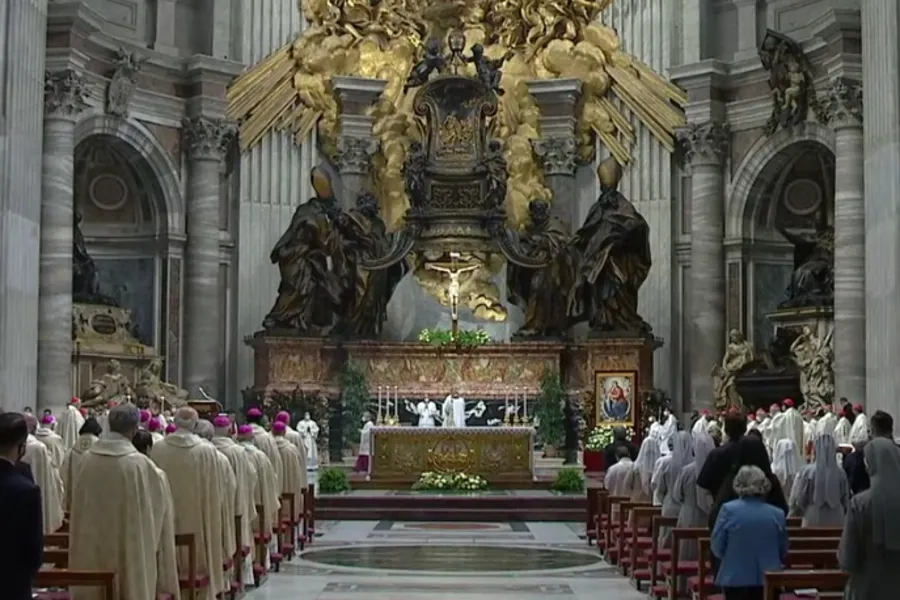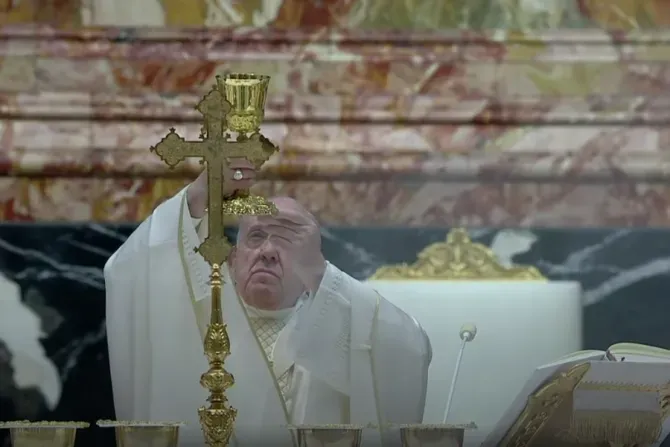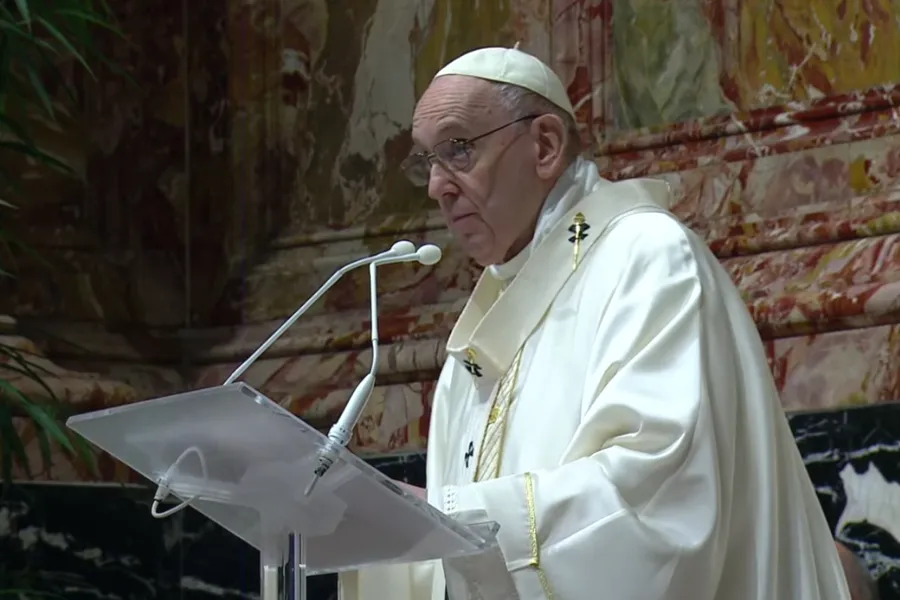“Jesus tells his disciples that the Passover meal can be eaten wherever a man carrying a pitcher of water leads them. To celebrate the Eucharist, therefore, we need first to recognize our thirst for God, to sense our need for him, to long for his presence and love, to realize that we cannot go it alone, but need the Food and Drink of eternal life to sustain us on our journey,” he said.
“The drama of the present time, we can say, is that this thirst is felt less and less. Questions about God are no longer asked, desire for God has faded, seekers of God have become increasingly rare. God no longer attracts us because we no longer acknowledge our deep thirst for him.”
The pope continued: “Our thirst for God brings us to the altar. Where that thirst is lacking, our celebrations become dry and lifeless. Even as Church, then, it is not enough that the usual little group meets to celebrate the Eucharist; we need to go out into the city, to encounter people and to learn how to recognize and revive their thirst for God and their desire for the Gospel.”
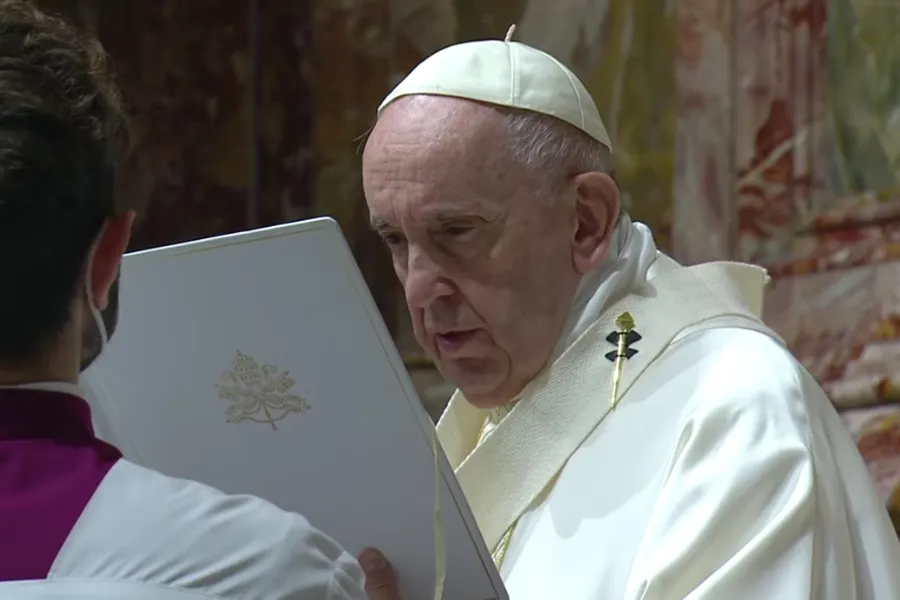
The second image, he said, was that of the spacious Upper Room, which challenges us to expand our hearts.
(Story continues below)
The third and final image from the Gospel reading was that of Jesus breaking the bread.
“In the Eucharist, we contemplate and worship the God of love. The Lord who breaks no one, yet allows himself to be broken. The Lord who does not demand sacrifices, but sacrifices himself. The Lord who asks nothing but gives everything,” he said.
“In celebrating and experiencing the Eucharist, we too are called to share in this love. For we cannot break bread on Sunday if our hearts are closed to our brothers and sisters. We cannot partake of that Bread if we do not give bread to the hungry. We cannot share that Bread unless we share the sufferings of our brothers and sisters in need.”
“In the end, and the end of our solemn Eucharistic liturgies as well, only love will remain. Even now, our Eucharistic celebrations are transforming the world to the extent that we are allowing ourselves to be transformed and to become bread broken for others.”
At the end of the Mass, there was an extended period of adoration of the Blessed Sacrament, followed by Benediction.
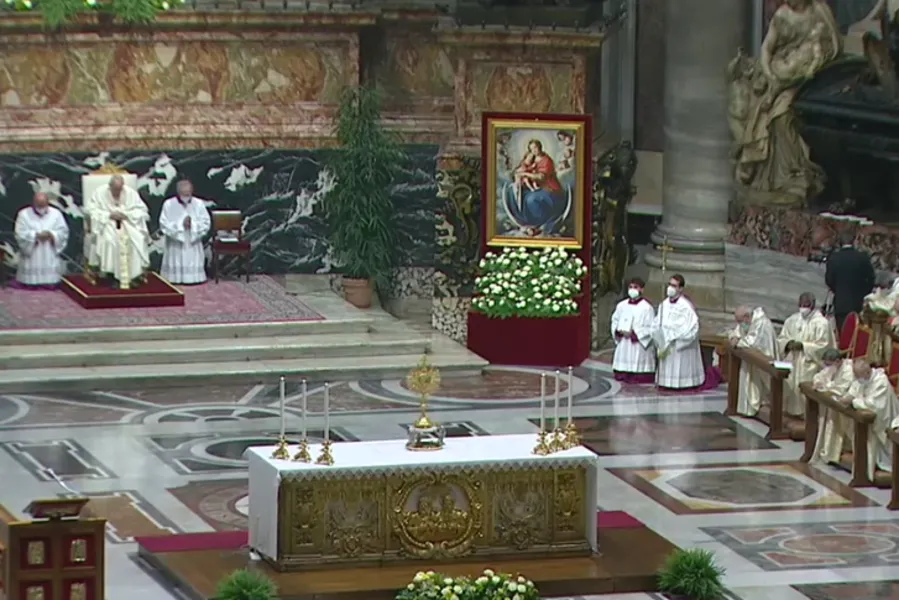
In his homily, the pope noted that, for a second year in the row, he was unable to lead a procession with the Blessed Sacrament in the feast of Corpus Christi due to coronavirus measures.
Processions, he said, reminded us that we are called to go out and bring Jesus to others.
“May we become a Church with pitcher in hand, a Church that reawakens thirst and brings water. Let us open wide our hearts in love, so that we can become be the large and welcoming room where everyone can enter and meet the Lord,” he urged.
